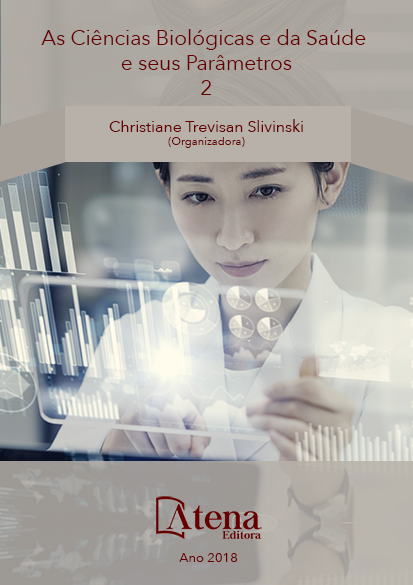
Isolamento de Fungos Endofíticos em Plantas Medicinais
Os fungos endofíticos habitam
o interior de plantas de forma harmoniosa,
protegendo-as contra fitopatógenos e induzindoas
à resistência a pragas. Estudos mostram o
potencial de proteção da planta hospedeira,
produzindo compostos tais como enzimas,
alcalóides e antibióticos. As plantas medicinais
têm sido alvo de isolamento, caracterização e
análise da diversidade de fungos endofíticos,
devido o seu potencial. Desse modo, o objetivo
deste trabalho é o isolamento de fungos
endofíticos em plantas medicinais coletadas no
município de Itambé-Bahia. Foram utilizadas
três folhas saudáveis de cada planta (Lavandula
angustifólia Mill (Alfazema), Plectranthus
barbatus (Boldo), Plectranthus amboinicus
(Hortelã Grosso), Citrus cf aurantium (Laranja)
) e esterilizadas por imersão em álcool 70%,
NaClO 3% e etanol 70%. Feita a assepsia,
cortou-se com bisturi, fragmentos de 1cm e
inseridas em placas de Petri contendo meio
BDA (Batata-Dextrose-Ágar) com 0,2% de
extrato de levedura e 100 μg/ml de Tetraciclina,
além do controle negativo com alíquotas com
água estéril. As placas foram identificadas e
incubadas em BOD a temperatura de 28° a 30°,
durante 7 dias. Em seguida os fungos crescidos
foram repicados em BDA e acondicionados sob
mesma temperatura e período, posteriormente
foi feita a caracterização macroscópica e
microscópica. Obteve-se um total de 11
fungos endofíticos isolados, sendo 1 fungo
da Lavandula angustifólia Mill, 4 fungos do
Plectranthus barbatus, 1 fungo do Plectranthus
amboinicus e 5 fungos do Citrus cf aurantium.
Devido a ausência de estruturas de esporulação não foi possível identificar os fungos
isolados, sendo necessário novos isolamentos dos mesmos para identificação.
Isolamento de Fungos Endofíticos em Plantas Medicinais
-
DOI: Atena
-
Palavras-chave: Plantas medicinais. Isolamento fúngico. Boldo. Hortelã Grosso. Laranja.
-
Keywords: Medicinal plants. Fungal isolation. Boldo. Hortelã Grosso. Orange.
-
Abstract:
Endophytic fungi inhabit the interior of plants harmoniously, protecting them
against phytopathogens and inducing them to resistance to pests. Studies show the
protective potential of the host plant, producing compounds such as enzymes, alkaloids
and antibiotics. Medicinal plants have been subjected to isolation, characterization
and analysis of endophytic fungi diversity, due to their potential. Thus, the objective
of this work is the isolation of endophytic fungi in medicinal plants collected in the
municipality of Itambé-Bahia. Three healthy leaves of each plant were used (Lavandula
angustifólia Mill (Alfazema), Plectranthus barbatus (Boldo), Plectranthus amboinicus
(Hortelã Grosso), Citrus cf aurantium (Laranja) ) and sterilized by immersion in 70%
alcohol, 3% NaClO and 70% ethanol. Aseptically, 1-cm-length fragments were inserted
into Petri dishes containing BDA (Potato-Dextrose-Agar) with 0.2% of yeast extract
and 100 μg / ml of Tetracycline, in addition to the negative control with aliquots of
sterile water. Plates were identified and incubated in BOD at 28° to 30° for 7 days. After
that, the fungi were grown in BDA and conditioned under the same temperature and
period, after which the macroscopic and microscopic characterization was done. A total
of 11 isolated endophytic fungi were obtained, 1 fungus from Lavandula angustifolia
Mill, 4 fungi from Plectranthus barbatus, 1 fungus from Plectranthus amboinicus and 5
isolates from Citrus cf aurantium. Due to the absence of sporulation structures it was
not possible to identify the isolated fungi, and new isolates of the same are necessary
for identification.
-
Número de páginas: 15
- Rebeca Rocha Silva


